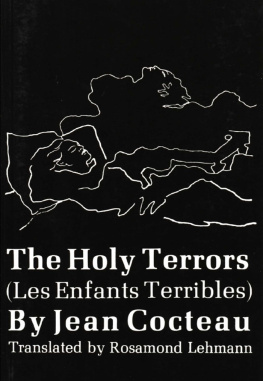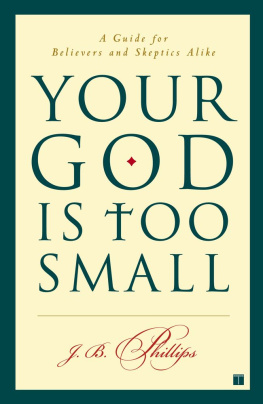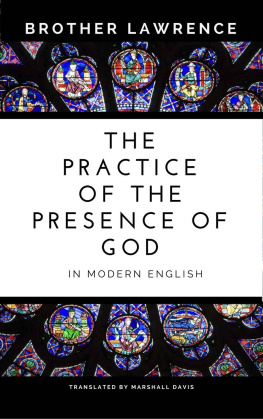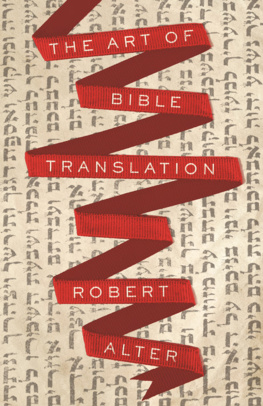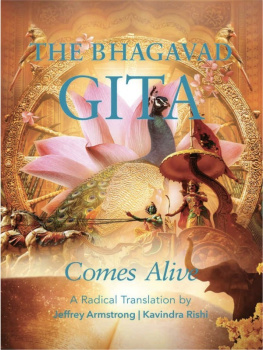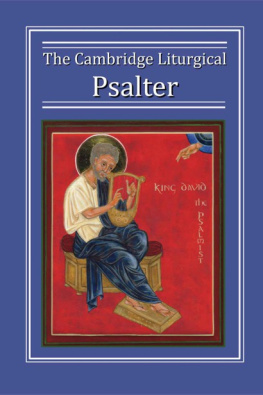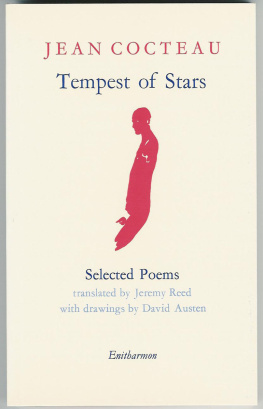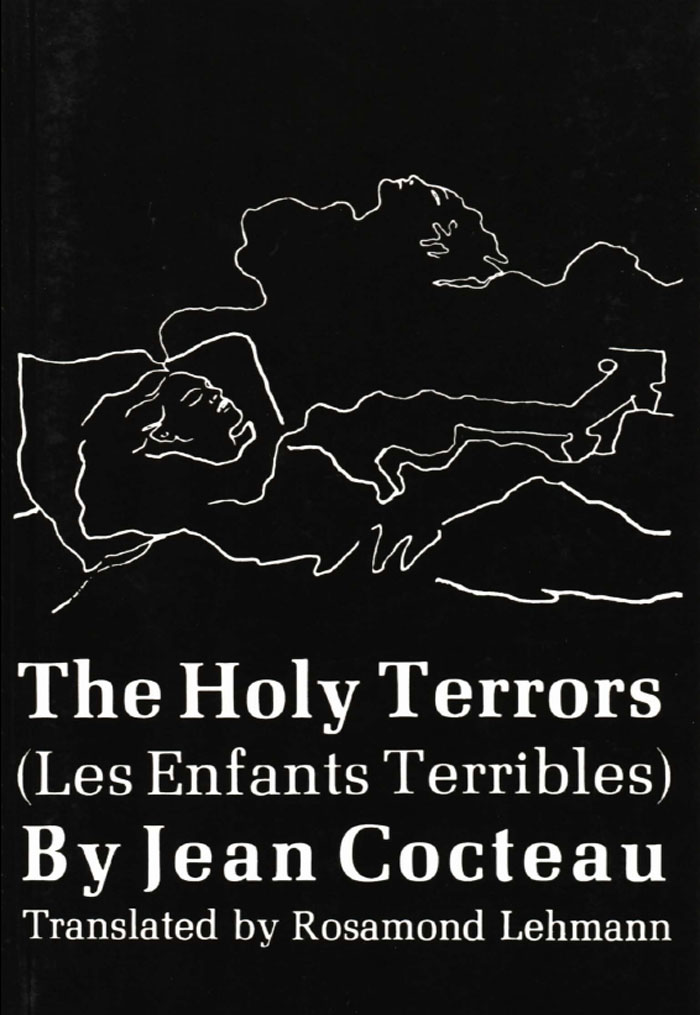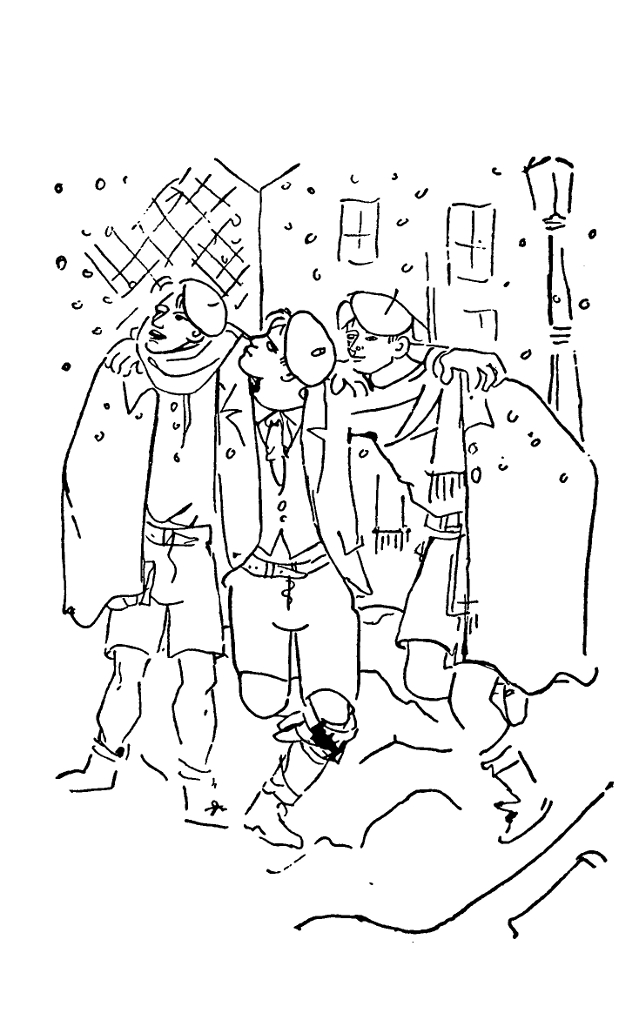ILLUSTRATIONS
PART ONE
T HAT PORTION of old Paris known as the Cit Monthiers is bounded on the one side by the rue de Clichy, on the other by the rue dAmsterdam. Should you choose to approach it from the rue de Clichy, you would come to a pair of wrought iron gates: but if you were to come by way of the rue dAmsterdam, you would reach another entrance, open day and night, and giving access, first to a block of tenements, and then to the courtyard proper, an oblong court containing a row of small private dwellings secretively disposed beneath the flat towering walls of the main structure. Clearly these little houses must be the abode of artists. The windows are blind, covered with photographers drapes, but it is comparatively easy to guess what they conceal: rooms chock-a-block with weapons and lengths of brocade, with canvases depicting basketfuls of cats, or the families of Bolivian diplomats. Here dwells the Master, illustrious, unacknowledged, well-nigh prostrated by the weight of his public honors and commissions, with all this dumb provincial stronghold to seal him from disturbance.
Twice a day, however, at half-past ten in the morning and four oclock in the afternoon, the silence is shattered by a sound of tumult. The doors of the little Lyce Condorcet, opposite number 72b rue dAmsterdam, open, and a horde of schoolboys emerges to occupy the Cit and set up their headquarters. Thus it has reassumed a sort of medieval charactersomething in the nature of a Court of Love, a Wonder Fair, an Athletes Stadium, a Stamp Exchange; also a gangsters tribune cum place of public execution; also a breeding-ground for hazing schemeshazing to be hatched out finally in class, after long incubation, before the incredulous eyes of the authorities. Terrors they are, these lads, and no mistakethe terrors of the Fifth. A year from now, having become the Fourth, they will have shaken the dust of the rue dAmsterdam from their shoes and swaggered into the rue Caumartin with their four books bound with a strap and a square of felt in lieu of a satchel.
But now they are in the Fifth, where the tenebrous instincts of childhood still predominate: animal, vegetable instincts, almost indefinable because they operate in regions below conscious memory, and vanish without trace, like some of childhoods griefs; and also because children stop talking when grown-ups draw nigh. They stop talking; they take on the aspect of beings of a different order of creationconjuring themselves at will an instantaneous coat of bristles or assuming the bland passivity of some form of plant life. Their rites are obscure, inexorably secret; calling, we know, for infinite cunning, for ordeal by fear and torture; requiring victims, summary executions, human sacrifices. The particular mysteries are impenetrable; the faithful speak a cryptic tongue; even if we were to chance to overhear unseen, we would be none the wiser. Their trade is all in postage stamps and marbles. Their tribute goes to swell the pockets of the demi-gods and leaders; the mutter of conspiracy is shrouded in a deafening din. Should one of that tribe of prosperous, hermetically preserved artists happen to pull the cord that works those drapes across his window, I doubt if the spectacle thereby revealed to him would strike him as copy for any of his favorite subjects: nothing he could use to make a pretty picture with a title such as Little Black Sweeps at Play in a White World; or Hot Cockles; or Merry Wee Rascals.
There was snow that evening. The snow had gone on falling steadily since yesterday, thereby radically altering the original design. The Cit had withdrawn in time; the snow seemed no longer to be impartially distributed over the whole, warm, living earth, but to be dropping, piling only upon this one isolated spot.
The hard, muddy ground had already been smashed, churned up, crushed, stamped into slides by children on their way to school. The soiled snow made ruts along the gutter. But the snow had also become the snow on porches, steps, and house-fronts: featherweight packages, mats, cornices, odds and ends of wadding, ethereal yet crystallized, seemed, instead of blurring the outlines of the stone, to quicken it, to imbue it with a kind of presage.
Gleaming with the soft effulgence of a luminous dial, the snows incandescence, self-engendered, reached inward to probe the very soul of luxury and draw it forth through stone till it was visible; it was that fabric magically upholstering the Cit, shrinking it and transforming it into a phantom drawing-room.
Seen from below, the prospect had less to recommend it. The street lamps shed a feeble light upon what looked like a deserted battlefield. Frost-flayed, the ground had split, was broken up into fissured blocks, like crazy pavement. In front of every street drain, a stack of grimy snow stood ominous, a potential ambush; the gas-jets flickered in a villainous northeaster; and dark holes and corners already hid their dead.
Viewed from this angle, the illusion produced was altogether different. Houses were no longer boxes in some legendary theater but houses deliberately blacked out, barricaded by their occupants to hinder the enemys advance.
In fact the entire Cit had lost its civic status, its character of open mart, fairground, and place of execution. The blizzard had commandeered it totally, imposed upon it a specifically military rle, a particular strategic function. By ten minutes past four, the operation had developed to the point where none could venture from the porch without incurring risk. Beneath that porch the reservists were assembled, their numbers swollen by the newcomers who continued to arrive singly or two by two.
Seen Dargelos?
Yes no I dont know.
This reply came from one of two youths engaged in bringing in one of the first casualties. He had a handkerchief tied round his knee and was hopping along between them and clinging to their shoulders.
The question had come from a boy with a pale face and melancholy eyesthe eyes of a cripple. He walked with a limp, and his long cloak hung oddly, as if concealing some deformity, some strange protuberance or hump. But nearing a corner piled with school haversacks, he suddenly flung his cloak back, exposing the nature of his disability: not a growth, but a heavy satchel eccentrically balanced on one hip. He dropped it, ceased to be a cripple; the eyes, however, did not alter.
He advanced towards the battle.
To the right, where the footpath joined the arcade, a prisoner was being subjected to interrogation. By the spasmodic flaring of a gas lamp he could be seen to be a small boy with his back against the wall, hemmed in by his captors, a group of four. One of these, a senior boy, was squatting between his legs and twisting his ears, to the accompaniment of a series of hideous facial contortions. By way of crowning horror, the monstrous ever-changing mask confronting the prisoners was dumb. Weeping, he sought to close his eyes, to avert his head. But every time he struggled, his torturer seized a fistful of gray snow and scrubbed his ears with it.
Circumnavigating the group, threading a path through shot and shell, the pale boy went on his way.
He was looking for Dargelos, whom he loved.
It was the worse for him because he was condemned to love without forewarning of loves nature. His sickness was unremitting and incurablea state of desire, chaste, innocent of aim or name.
Dargelos was the Lyces star performer. He throve on popular support and equally on opposition. At the mere sight of those disheveled locks of his, those scarred and gory knees, that coat with its enthralling pockets, the pale boy lost his head.

